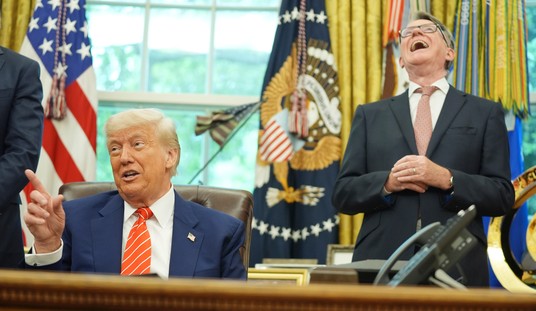Back in 1999 while writing a congressional history column, I discovered a wacky character from Virginia named John Randolph of Roanoke. The little bit I learned about him in that first round of research fascinated me so much that I spent the next several weeks learning as much as I could about him. I requested book after book through inter-library loans and invested several hours in marathon reading and note-taking sessions.
Randolph was elected to the House of Representatives at the age of 26 and soon became majority leader and Ways and Means Committee chairman. He served in the House off and on from 1799 to 1833. During one break in that stretch, from 1825 to 1827, Randolph served as a U.S. senator. He also briefly served as President Andrew Jackson’s minister to Russia in 1830.
Randolph’s unwavering commitment to his political principles impressed me the most. He never met a president (and seldom a politician of any sort) who he liked for long because all of them ultimately betrayed their personal beliefs for the sake of party – and that, he thought, to the detriment of the nation. By contrast, Randolph willingly sacrificed his own political fortune to remain true to his personal beliefs about how best to govern the country.
History remembers him best for introducing the phrase tertium quid into American political discourse. The Latin term has a simple English translation – “a third something” – and it inspired Randolph to break politically from his own cousin, the revered founding father Thomas Jefferson. Like the eccentric and independent gent who made the term famous in his day, tertium quid is the epitome of independent thinking.
The spirit behind that philosophy inspired me to write the “Manifesto of the Tertium Quid” 17 years ago under the pen name John Randolph of Roanoke. Now all of a sudden, in a presidential election where large numbers of Democrats and Republicans don’t trust their presumptive nominees but plan to vote for them anyway, the manifesto seems even more relevant.
Next page: Read the Manifesto of the Tertium Quid
Here is a slightly updated version for your consideration:
Ten score and forty years ago, our fathers gave voice to a new nation, when, in the midst of history’s greatest war of liberty, they made a daring Declaration of Independence. Their proclamation of self-evident truths inspired generations of freedom lovers to adopt as their own a vision of government of, by and for the people, and out of that shared vision was born an abiding model of democracy, a supreme republic.
We are the heirs of that grand experiment, but we are also its keepers. And we, the people, have allowed, whether by apathy or ignorance, our national house to fall into disrepair. Our error can be explained in one word: partisanship.
Our forbears, convinced of the rightness of their cause, fought a noble and revolutionary war of principle. But today, after nearly two-and-a-half centuries of ignoring the warnings of our first president, George Washington, we are fighting a partisan war without principle. We profess our loyalty not to God and the virtuous system of government He has given but to a creation of misguided and imperfect men called the political party.
Yesterday these men dubbed their factions the Federalists and Democratic Republicans; today, they label themselves Democrats and Republicans; tomorrow they may call each other Libertarians and Reformers. No matter the name, the flaw is the same – unflinching loyalty of the masses to the men and women who claim the labels, even when those men and women betray the canons of both party and country.
In our partisan blindness, we have elected to public office representatives and leaders unworthy of the honor and privilege we bestow upon them. When they have failed and in their arrogance refused to admit failure – whether in policy, politics, ethics or even simple decency, we have excused them instead of rejecting them in order to cleanse our pillars of government. In so doing, we have lowered the standards for their successors.
This is true of each of us, regardless of the partisan labels we wear. We have become complacent, and our complacency has given rise to an unparalleled hypocrisy that threatens the fabric of government, and thus threatens us.
Our human spirit, always frail yet always reluctant to acknowledge its frailty, moves us to cast the blame elsewhere – on the men and women we elect, on the men and women they appoint, on society, even on the system of government we have created. Yet we alone are to blame, for we alone, with the blessing of the Almighty God, have the power to shape our destiny as a people.
With the destruction wrought by our lapses in wisdom ever before us, we can see how poor our judgment has been. Painful to our haughty souls though it may be, we hereby acknowledge our part in the weakening of the institutions of government, and thereby our nation, and, by the signing of this manifesto, make our own declaration of independence – an independence from the divisiveness of partisan politics.
We make this declaration not as a condemnation of any one party but of all. Although we may struggle for years to reclaim our independence from the two-century-old partisan beast we have created, we will prevail in due time.
Next page: The guiding principles of the manifesto
To that end, we have determined from this day forward to adhere to these principles:
- We will vote our conscience, not the “party line,” every time we go to the polls.
- We will NEVER vote a straight ticket for a political party.
- We will study earnestly the qualifications and ideas of the candidates who seek our votes, regardless of their party affiliations.
- We will reject the empty platitudes of politicians who pander to their “base.”
- We will set high standards of representation, leadership and ethics for ALL candidates.
- We will reward with our loyalty the candidates who meet those standards and punish those who do not.
- We will give equal consideration to the candidates of “third” parties and even to candidates affiliated with no party at all.
- We will NEVER vote for a candidate simply because we cannot support his or her opponent, for the best of two bad choices is no choice at all.
- We will neither defend nor condone words or deeds that contradict our beliefs, regardless of our political ties to the men or women who speak or act unwisely.
- If we affiliate with a political party, we will do so only to the extent that the party and its leaders represent our personal beliefs and adhere to the above principles.









Join the conversation as a VIP Member